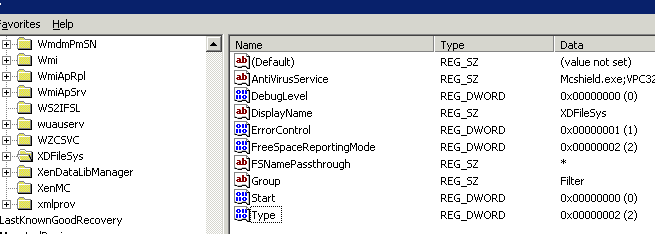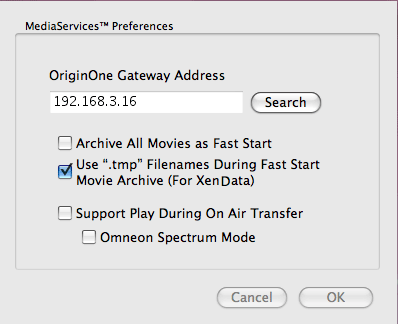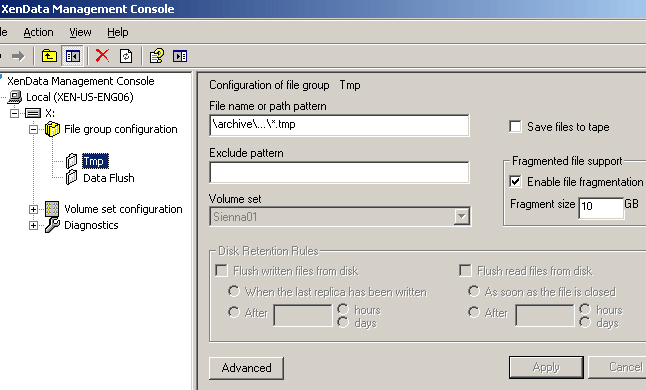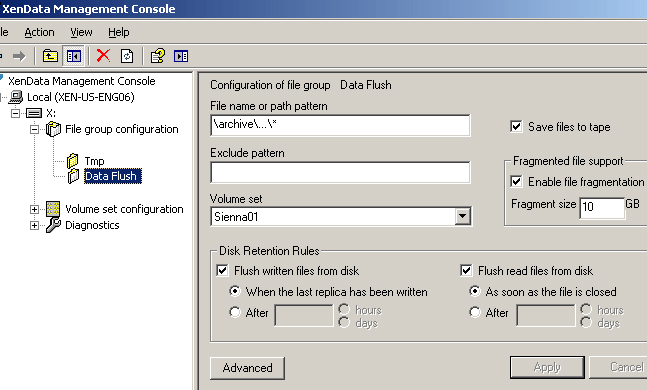Technical Note: XTN901
Overview
Sienna™ is a family of software modules from Gallery/IEC that run on Apple Mac computers running OS X. The Sienna family of products create an efficient and fully integrated QuickTime and MOS based news workflow, designed to be utilized with MOS News Systems such as ENPS, alongside a Final Cut Pro based QuickTime media infrastructure. For more information about Sienna, visit http://www.sienna-tv.com.
When Sienna archives to a XenData digital video archive, video files are written to data tape – typically to LTO format tapes. A key aspect of the total Sienna – XenData solution is that it supports partial file restores.
This technical note describes how to configure the Sienna and XenData systems for best performance. The following aspects of the system should be specially configured.
- Create a SMB (NTFS) share on the XenData archive server to maximize the effective network transfer rate.
- Configure both Sienna and the XenData File Group rules to create a temporary file on the archive disk cache during the archive process. This ensures that the multiple file versions that are created by Sienna during the archive process are not written to tape. Only the final version is archived to tape.
Creating a SMB (NTFS) Share:
A registry change must be made to the server running XenData Archive Series software to make the archive server share appear as a standard SMB/CIFS share of a NTFS volume. Without this change, OS X client computers report the share as SMB (FAT) which is incorrect but makes no difference to performance when archiving and restoring with Finder. However, when archiving using Sienna or Quicktime, the transfer to archive is inefficient and slow because each time the file is extended, the OS X client writes zeros over the network before sending the correct data.
The registry change is made by adding a new string value to:
HKEY_LOCAL_MACHINE/SYSTEM/
CurrentControlSet/Services/XDFileSys/
This string must be named "FSNamePassthrough" and given a value "*". This is illustrated below:

Implementing a Temporary File Version
Sienna must be configured to create a temporary file on the archive during the writing process. After the file has been transferred, the Sienna software then renames the file from a ".tmp" to a ".mov". The XenData archive must be configured to write temporary files to disk cache only and to save ".mov" files to data tape.
To configure Sienna to create a temporary file, enable this option in MediaServices Preferences as illustrated below:

To configure the XenData archive to correctly handle the files from Sienna, create a folder called "Archive" at the root of the XenData volume and share this as a CIFS/SMB share and then configure the following two File Group rules using the XenData Management Console.
The first File Group rule applies to all ".tmp" files written to the Archive share and it ensures that these files are not saved to tape but are fragmented. Chose an appropriate fragment size such as 10 GB.

The second File Group rule applies to all data files including ".mov" files and it saves these to tape and then flushes them from disk cache. This rule must appear in the left pane of the XenData Management Console below the "Tmp" File Group rule. It is important that file fragmentation support settings are identical for both file group rules.

Applicable Operating Systems
- Windows Server 2008 R2
- Windows Server 2012 R2
- Windows Server 2016
- Windows Server 2019
Applicable XenData Software
This technical note is applicable to:
- Version 5 – Server Editions of Archive Series software
- Version 6 – Server Editions of Archive Series software
- Version 7 – Server Editions of Archive Series software including the Cloud File Gateway






